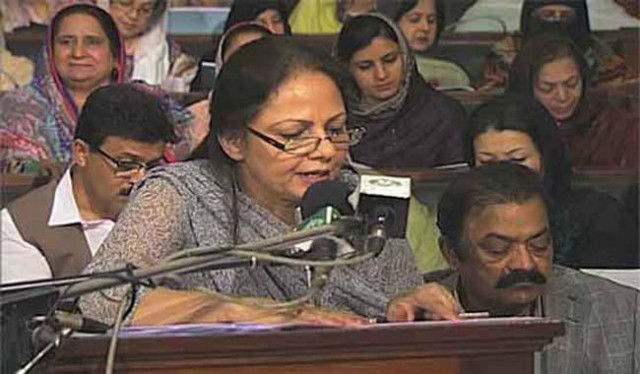Budgeting for Punjab
Punjab announced its Rs1.681 trillion budget on June 13

Dr Ayesha Ghaus Pasha presents budget in the Punjab Assembly on Monday. SCREEN GRAB
However, while a huge sum of money will be spent in this area, there is no coherent strategy that takes all provinces on board to increase agricultural income, while broadening the tax net on the sector. Much to the delight of parliamentarians with a stronghold in rural areas, Kisan packages as well as subsidies have been announced, but there has been absolutely no mention of increasing tax collection from the sector. The end result is simple — the entire country will be supporting the sector through increased tax rates. The Punjab government is also aiming to tap the real estate segment, stressing that the measure will curb speculative investment and re-direct money to productive areas that create jobs. On the face of it, this makes sense and we welcome the move. But increasing rates without cracking down on those who find ways to evade taxes will result in a hollow effort. When tax rates are raised, people find ways to avoid paying taxes altogether unless an enforcement mechanism is put in place. Sadly, attempts to enforce binding tax liabilities have fallen flat and we expect that to continue.
Published in The Express Tribune, June 15th, 2016.
Like Opinion & Editorial on Facebook, follow @ETOpEd on Twitter to receive all updates on all our daily pieces.















COMMENTS
Comments are moderated and generally will be posted if they are on-topic and not abusive.
For more information, please see our Comments FAQ